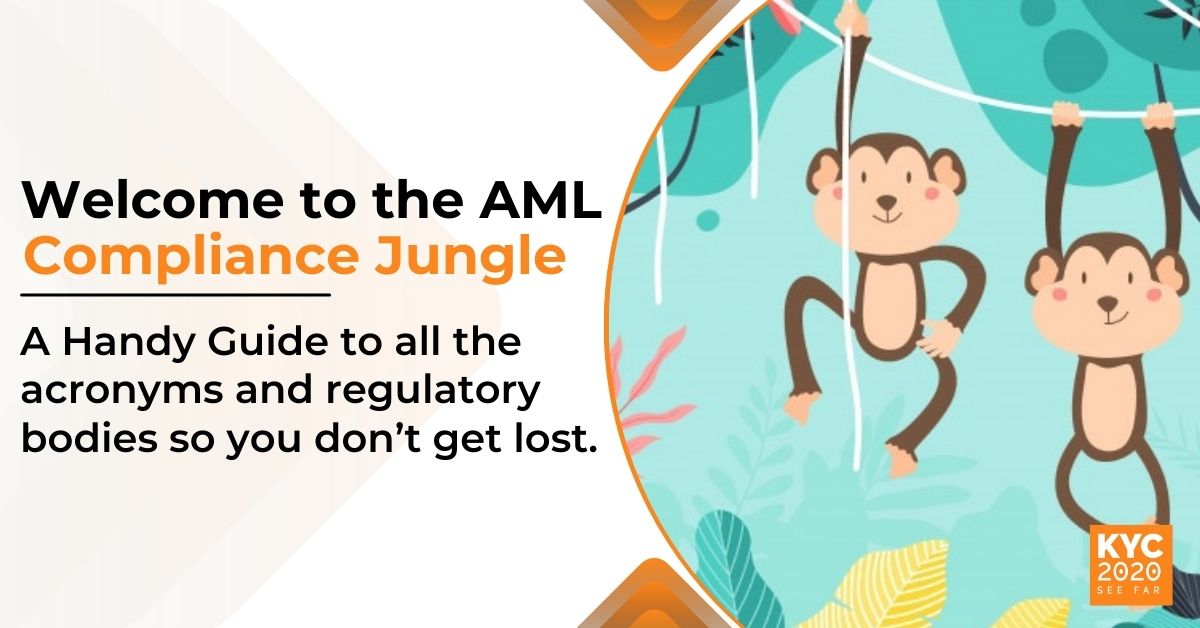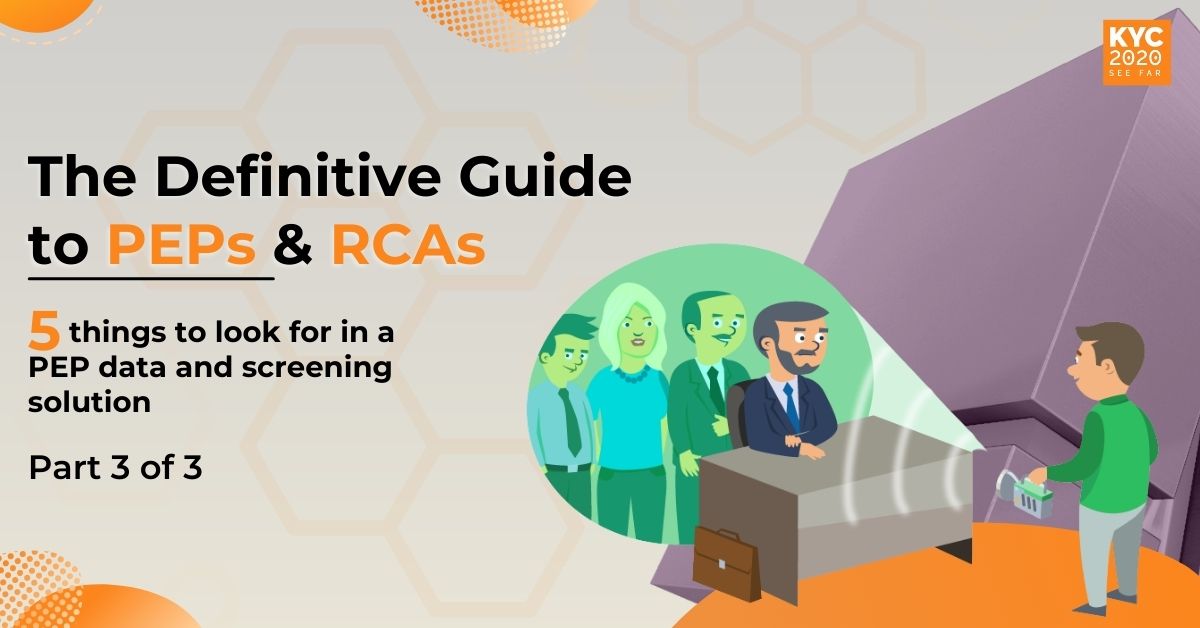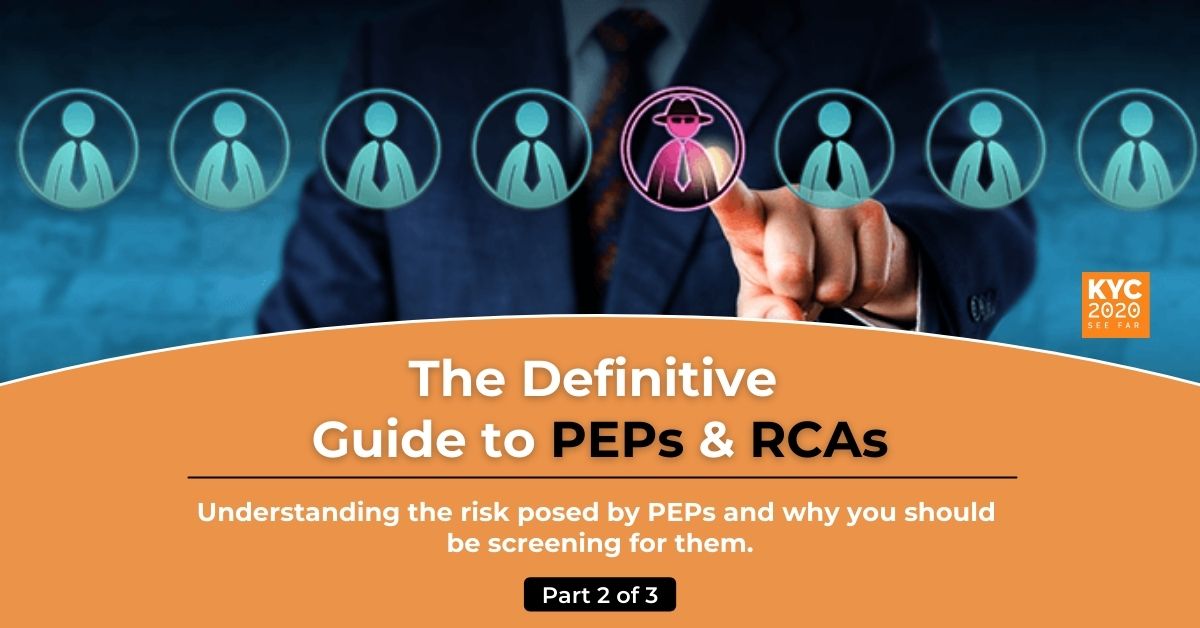Keeping your business compliant when it comes to sanctions screening can be a bit intimidating. Let’s start with understanding what it means to Know Your Customer or Client (KYC).
Banks must check the identity of their clients at the time of onboarding. In other words, they must make sure that clients are genuine. They must also identify the risk they represent as clients to the banking system. Different types of clients come with different levels of risk. The level of risk determines the frequency of ongoing monitoring and transactional screening that must be conducted throughout the client relationship.
Lets take a look at high risk clients, and how to identify them.
Sanctioned Persons and Entities
These are the individuals, companies, and organizations that are persona non grata. They are prohibited counter-parties. You should not be doing business with them. Depending on your jurisdiction, dealing with them can incur severe penalties.
Most government bodies and regulatory authorities publish these lists. These are generally knows as sanction lists. Sanction lists are regularly updated and you must continually screen your customers against these lists as part of your KYC process.
PEP’s
Politically Exposed Persons usually have a high profile political role or serve in public office. They may be at increased risk of involvement in money laundering or even terrorist financing based on their position.
Companies looking to do business with PEP’s need to disclose this and continuously monitor their transactions to ensure they are compliant and not engaging in nefarious activities.
Who can fall into this category?
Here is a list people can make the PEP list.
- Government officials, Presidents, Prime Ministers, and even cabinet members of countries.
- The second tiers are the officials of the ruling parties and their opposition parties.
- Any senior executives and board members of government-controlled entities. Any relatives or close associates of any of the people mentioned above.
Often, nepotism is the easiest way to move government funds to relatives. While employing family members into positions of power may buy loyalty, these appointments often lack the required auditing when going through procurement or tender processes.
Criminal Organizations
Money laundering happens through seemingly legitimate companies. Directors or owners can often be persons of interest who hide criminal activity behind the legitimate business. Your company must do regular screenings of customers against global watchlists and negative news as part of your KYC checks. This will ensure your company remains alert to any underhanded activities that could be funding crime.
Financial Institutions should report any activity identified as possible money laundering or criminal funding activities and will freeze customer accounts until investigations are complete.
Terrorist Activities
Governments release sanction lists that include terrorist activities. Financial Institutions use the lists for sanction screening of individuals, companies, and organizations as part of their KYC process. There are almost daily updates on the targeted financial sanctions lists. They are critical to limit criminal funds’ movement to terrorist organizations to help them fund arms deals and terrorist activities.
Transaction monitoring and ongoing sanction screening of new or existing customers is a minimum requirement for any KYC process. The frequency of ongoing monitoring will depend on the AML risk profile and the risk-based approach of the company.
Reduce the risk of non-compliance
Thanks to regulation technology (RegTech), quality and affordable solutions for KYC check and AML compliance are available to your company. For large financial institutions or small non-financial firms, ensure you stay on the right side of the law. Proper compliance reduces the risk of fines and warnings. Non-compliance, especially as it relates to sanctions screening for KYC, can be costly – not to mention the long-lasting reputational damage for your business.
KYC2020 is one of the world’s 100 most innovative regulation technology solution providers as ranked by RegTech Analyst. For a demo or appointment with KYC2020, please click here.








